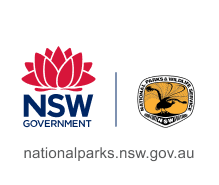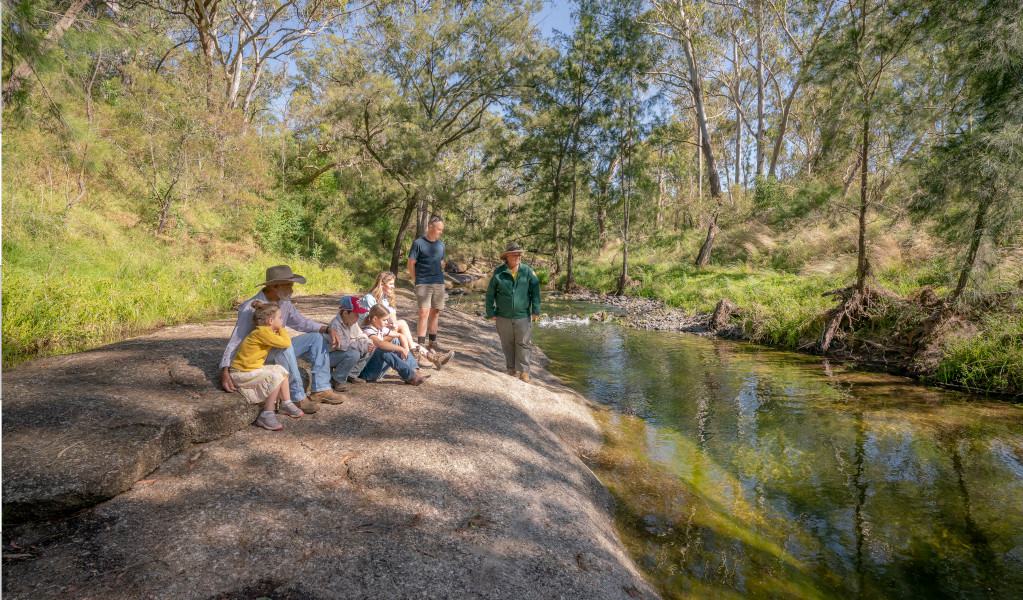Towarri National Park
Overview
Camp, swim and hike in Towarri National Park where you’ll find sandstone outcrops, secluded waterholes, diverse birdlife and scenic lookouts, just 25km from Scone.
Read more about Towarri National Park
Towarri is a diverse landscape of various vegetation types. Pockets of rainforest, stands of large grass trees and sections of snow gum co-exist within the park. There’s also a wide range of birds, including the endangered speckled warbler.
Sandstone outcrops offer sweeping scenic views of the Upper Hunter and a lack of defined tracks in the park’s mountainous terrain allow hikers the freedom to independently explore. Look out for the caligula skink, which is only found here in the Liverpool Ranges and in the Barringtons.
Camp or picnic beside Middle Brook, enjoy the scenery from the viewing platform and take a refreshing dip in the Washpools waterhole.
Local alerts
For the latest updates on fires, closures and other alerts in this area, see https://uat.nswparks.cloud/visit-a-park/parks/towarri-national-park/local-alerts
Contact
- in the Country NSW region
Towarri National Park is always open but may have to close at times due to poor weather or fire danger
-
-
Scone office
02 6540 2300
Contact hours: Monday to Friday, 8.30am to 4.30pm. - 19 Hayes Street, Scone NSW 2337
-
Email: npws.barringtontops@environment.nsw.gov.au
-
Scone office
Visitor info
All the practical information you need to know about Towarri National Park.
Map
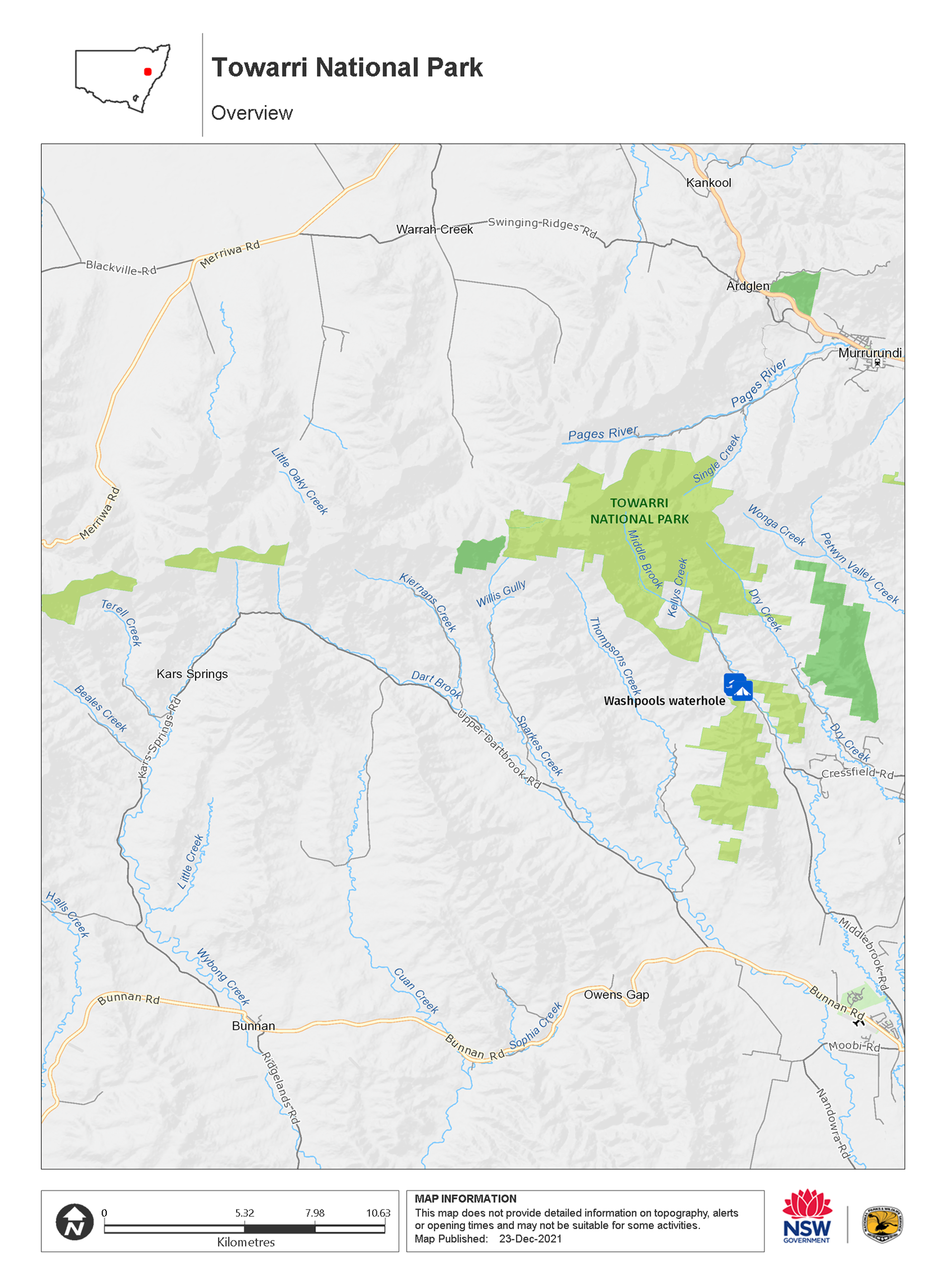
Map legend
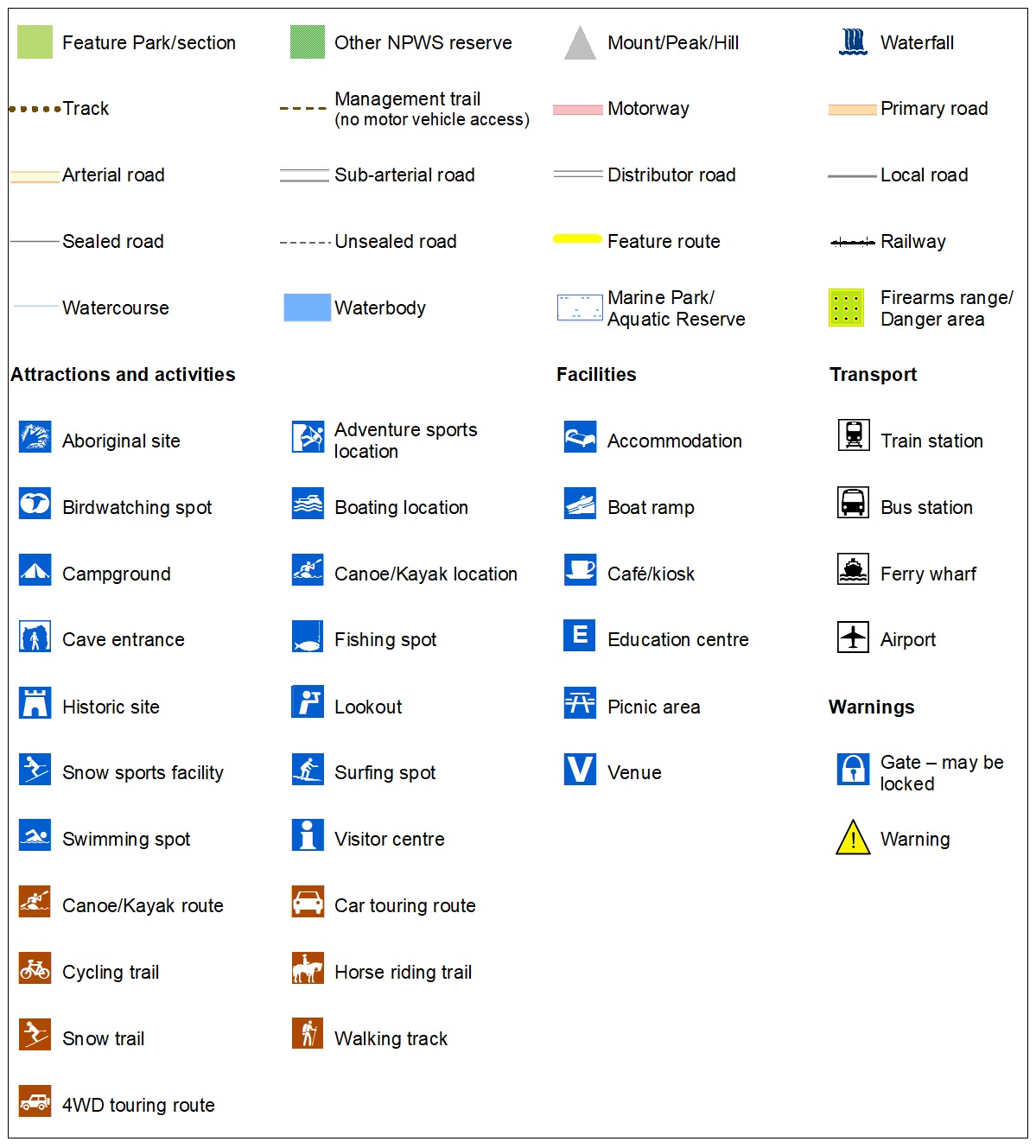
Maps and downloads
Nearby towns
Scone (20 km)
Nestled in the picturesque Upper Hunter, Scone is known as the horse capital of Australia.
Muswellbrook (45 km)
Muswellbrook is a vibrant country town surrounded by vineyards and horse studs. It straddles the Hunter River in the fertile wine-growing region of the Upper Hunter. Enjoy the local produce while you take in the natural beauty of the surrounding wilderness.
Tamworth (127 km)
Tamworth's annual Country Music Festival is the largest music festival in the southern hemisphere and one of the top 10 music festivals in the world, with more than 2,200 events and 400 performances or gigs across 90 venues.
Learn more
Towarri National Park is a special place. Here are just some of the reasons why:
The first people
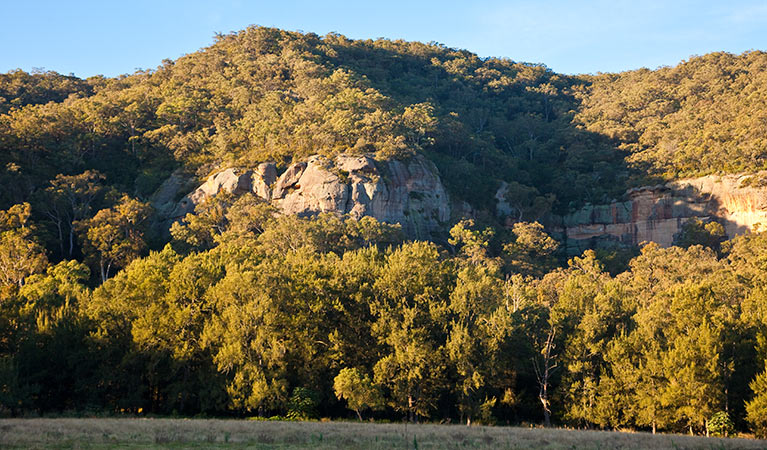
The Wonnarua people were the first inhabitants of the Hunter Valley, which was known as Coquun before European settlement. Their name, ‘Wonnarua’, means ‘people of the hills and plains’, and their traditional lands reach from near Maitland in the Upper Hunter to the Great Dividing Range towards Wollombi. Their history in the area is shared with nearby groups such as Worimi to the northeast and Awakakal to the southeast. Towarri means ‘warrior’ in the language of the Wonnarua, and these people fought hard for their land after European settlement.
Snow gums and spinifex
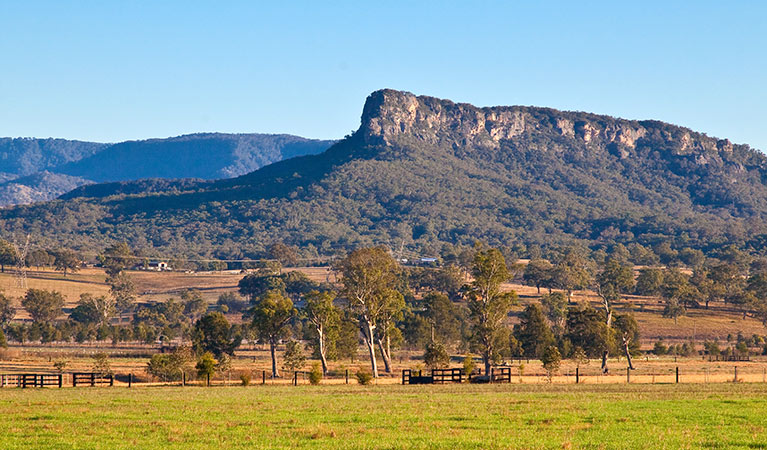
Three distinct bioregions meet in Towarri: the Sydney Basin, the Brigalow Belt South and North Coast. This means that the soil type, fertility and depth differ throughout the park. Throw in a variation in rainfall, elevation and geological features and the result is a mosaic of plant communities. Snow gums decorate the skyline above a snowgrass understorey on the high plateau areas of Mount Tinagroo and Bald Hill.
- Washpools picnic area and viewing platform Set beside the tranquil Middle Brook, Washpools picnic area and nearby scenic lookout are ideal for spending a relaxing day of swimming and barbecues with friends and family.
- Washpools waterhole Only 500m along Middle Brook from Washpools picnic area and viewing platform is the shallow, naturally formed Washpools waterhole — great for a dip on a hot day.
Fabulous flowers and creatures of flight
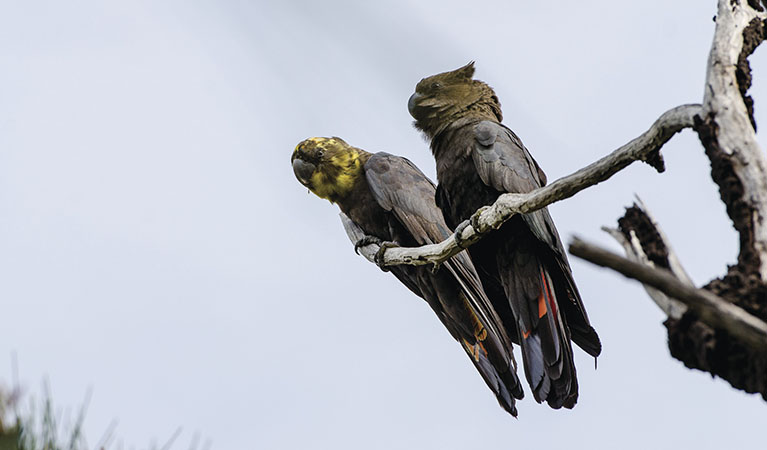
Towarri is inhabited by a range of birds and animals, many with a particularly distinctive call, appearance or ability that appears in their name. The powerful owl is as strong as it sounds, hunting and feeding on medium-sized mammals and marsupials including gliders, possums and wallabies. The glossy-black cockatoo is as self-explanatory as the red-tailed and yellow-tailed black cockatoos. The greater glider spreads itself out like a sheet of paper to change trees. The Liverpool Range sees the blending of many plant species. Towarri National Park is home to about 650 species. From the cassuarina forests along the creeklines to the majestic snow gum on the ridgeline, that are capped with snow on occasion. The miltant grass trees stand on the hills amongst the serene poa grasslands. The gully lines off the falls of sandstone play host to dry rainforest pockets providing habitat to many fauna species. The unique area is a floristic wonderland with many species at the edge of the range.
- Washpools picnic area and viewing platform Set beside the tranquil Middle Brook, Washpools picnic area and nearby scenic lookout are ideal for spending a relaxing day of swimming and barbecues with friends and family.
- Washpools waterhole Only 500m along Middle Brook from Washpools picnic area and viewing platform is the shallow, naturally formed Washpools waterhole — great for a dip on a hot day.
Education resources (1)
School excursions (1)
What we're doing
Towarri National Park has management strategies in place to protect and conserve the values of this park. View the detailed park and fire management documents.
General enquiries
- National Parks Contact Centre
- 7am to 7pm daily
- 1300 072 757 (13000 PARKS) for the cost of a local call within Australia excluding mobiles
- parks.info@environment.nsw.gov.au
Contact
- in the Country NSW region
Towarri National Park is always open but may have to close at times due to poor weather or fire danger
-
-
Scone office
02 6540 2300
Contact hours: Monday to Friday, 8.30am to 4.30pm. - 19 Hayes Street, Scone NSW 2337
-
Email: npws.barringtontops@environment.nsw.gov.au
-
Scone office
